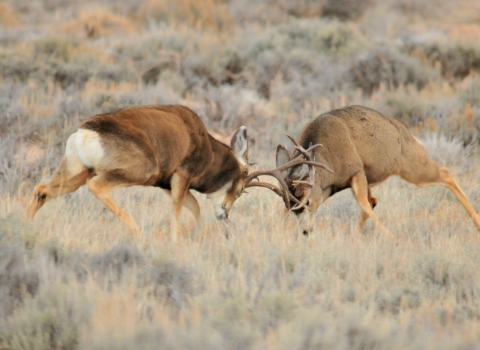VERO BEACH, Florida – The U.S. Fish and Wildlife Service (Service) is listing the Miami tiger beetle as “endangered” under the Endangered Species Act (ESA), meaning the beetle is in danger of extinction throughout all or a significant portion of its range now or in the foreseeable future.
The listing of the Miami tiger beetle as endangered becomes effective on November 4, 2016, 30 days after its publication on October 5, 2016, in the Federal Register.
The Miami tiger beetle was considered extinct until 2007 when a small population was discovered near Zoo Miami. Now the distinctive beetle with a shiny dark green dorsal surface is only known to survive in two separate, very small populations in Miami’s disappearing pine rocklands---one in the Richmond Pine Rocklands and another discovered in 2015 about three miles from there and separated by urban development. These rare pine rocklands are home to six plant and animal species already protected under the ESA.
While the designation of critical habitat is prudent, the Service is delaying a proposed designation at this time and expects to complete work on it by September 30, 2017. In addition, there is a proposal to build two developments in the Richmond Pine Rocklands and the Service continues to work with developers.
“Only two small populations of the rare Miami tiger beetle still survive in its pine rockland habitat,” said Cindy Dohner, the Service’s Southeast Regional Director. “We are listing the beetle to ensure its continued survival and conserve its shrinking habitat. All information available to us when we proposed the tiger beetle for listing was carefully considered. We are working closely with prospective developers and key stakeholders in Miami-Dade County to ensure that the Miami tiger beetle is considered in development or management plans.”
Miami tiger beetles need bare or sparsely vegetated, sandy habitat patches that are found within pine rockland habitat to survive. Habitat loss, degradation, and fragmentation have destroyed about 98 percent of the historical pine rockland habitat in Miami-Dade County, and the ever-present threat of habitat loss is continuing from development, inadequate habitat management resulting in vegetation encroachment, and environmental effects from climate change climate change
Climate change includes both global warming driven by human-induced emissions of greenhouse gases and the resulting large-scale shifts in weather patterns. Though there have been previous periods of climatic change, since the mid-20th century humans have had an unprecedented impact on Earth's climate system and caused change on a global scale.
Learn more about climate change . Collection, restricted range, and few, small populations are other significant threats to the species.
The Service began a review of the Miami tiger beetle’s status and threats in early 2014. In December 2014, the Service received a petition requesting that the Miami tiger beetle be emergency listed as endangered and that critical habitat be designated under the ESA.
Now that Miami tiger beetles will be listed and protected, federal agencies are required under the Endangered Species Act to consult with the Service and consider the impacts to the species before taking an action, including land development or management. Private organizations are encouraged to work with the Service to develop Habitat Conservation Plans, which allow for certain types of development when adequate conservation measures to avoid and minimize impacts to the species are included.
For example, the Service has met with representatives of Ram Realty Services and the University of Miami, who have development interests in pine rockland habitat. The Service’s Southeast Region is currently reviewing a draft Habitat Conservation Plan (HCP) that accompanied an incidental take permit application for the project they are seeking to move forward. The HCP includes the Miami tiger beetle as a covered species. Following a legal review, the HCP will be made available for public review during a 60-day comment period. The HCP will be finalized and a decision on the incidental take permit application will be made by the Southeast Region once public comments are reviewed and considered. Completion of the process is not expected before spring 2017.
For more information about how you can help conserve the Miami tiger beetle, please contact Ken Warren, Public Affairs Officer, U.S. Fish and Wildlife Service, South Florida Ecological Services Office, 1339 20th Street, Vero Beach, Florida, 32960; by telephone 772-469-4323; or by facsimile 772-562-4288 or e-mail: ken_warren@fws.gov. Persons who use a telecommunications device for the deaf (TDD) may call the Federal Information Relay Service (FIRS) at 800-877-8339.
For more information about the Miami tiger beetle, please visit the Miami tiger beetle species profile.


